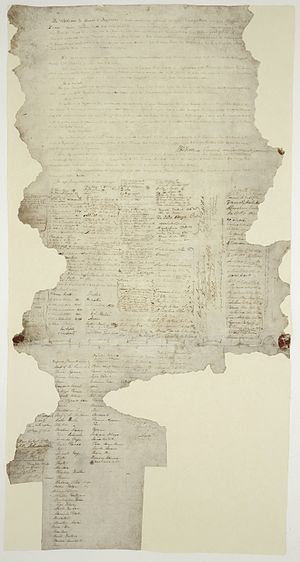One of nine extant copies (all damaged by water and rodents while in storage) of the Waitangi sheet of the Treaty of Waitangi, first signed on 6 February 1840 by representatives of the British Crown and various Māori chiefs from the North Island of New Zealand. Consequently, Lieutenant Governor William Hobson declared British sovereignty over New Zealand in May 1840. The treaty also established a British Governor of New Zealand; recognised Māori ownership of their lands, forests, and other properties; and gave the Māori the rights of British subjects. In return the Māori people ceded New Zealand to Queen Victoria, giving her government the sole right to purchase land. Owing to significant difference in the English and Māori versions, there was no consensus regarding governance. The courts long ignored the treaty, but in 1975 the Waitangi Tribunal was established as a permanent commission of inquiry tasked with researching British breaches of it, and suggesting means of redress.Document: William Hobson, James Freeman, and James Busby (English version); Henry Williams and Edward Williams (Māori translation)
